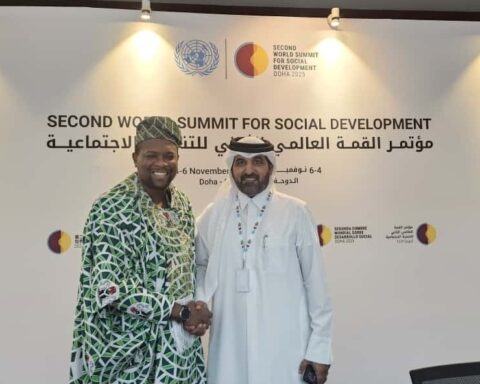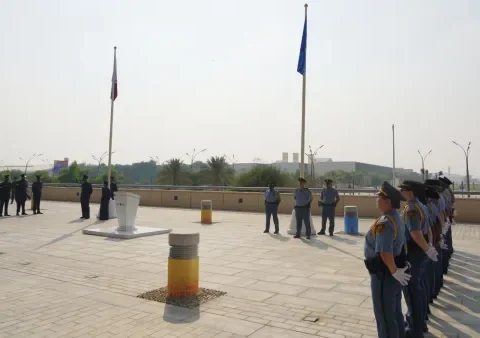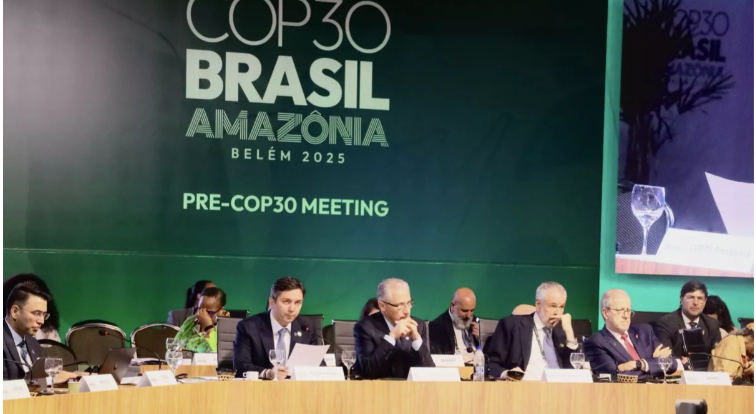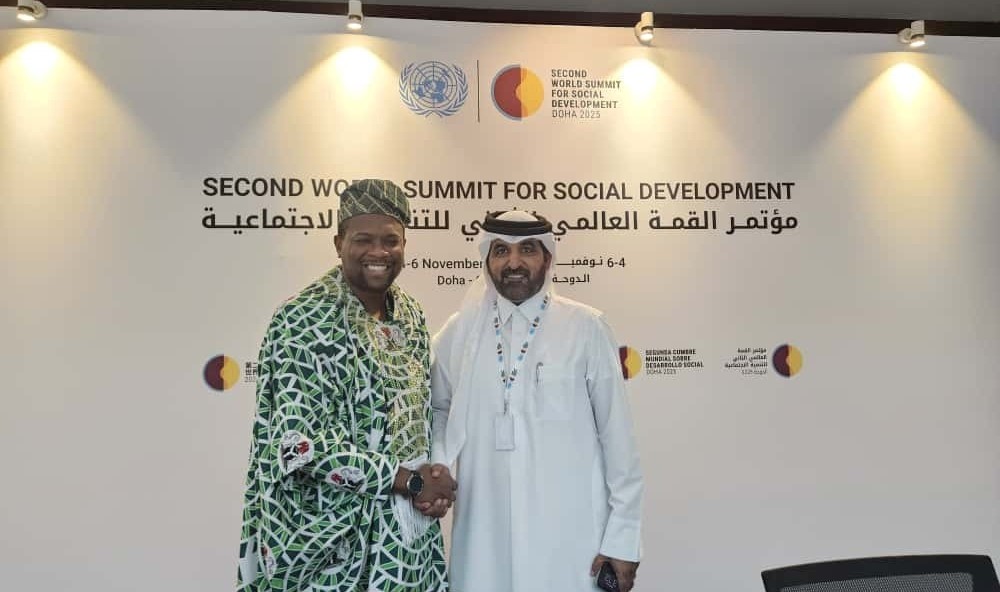World leaders have convened in Doha, Qatar, for the Second World Summit for Social Development, with a renewed pledge to advance global cooperation and accelerate progress toward a fairer, more inclusive world.
Speaking at the summit on Wednesday, the United Nations Deputy Secretary-General, Amina J. Mohammed, said the gathering marks a pivotal moment for humanity to reaffirm its collective promise to eradicate poverty, promote decent work, and uphold social dignity in an era marked by uncertainty.
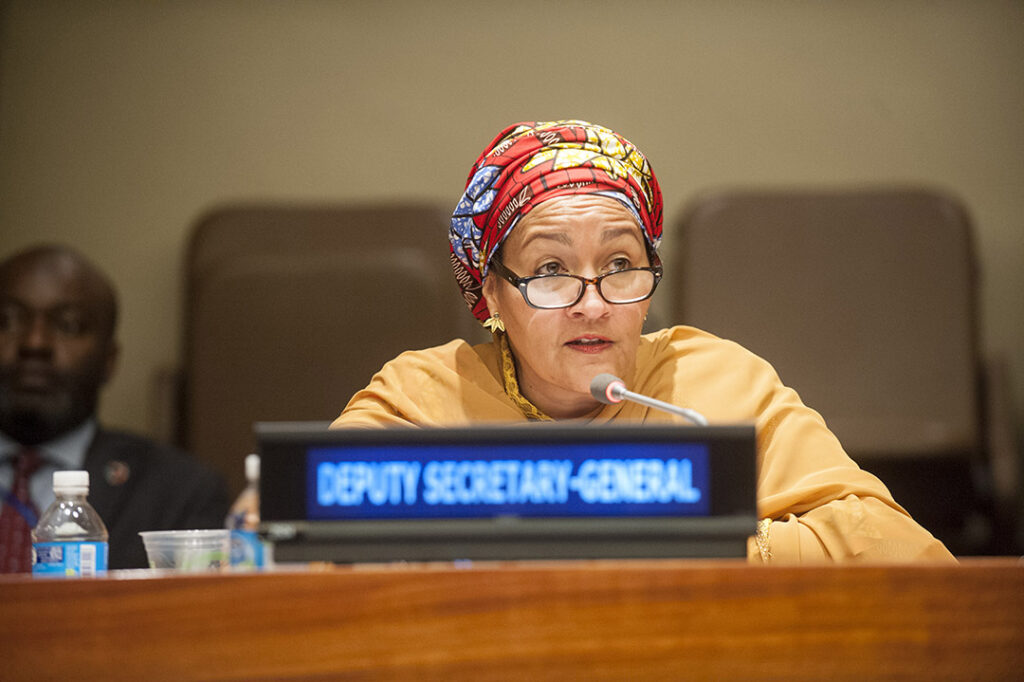
Mohammed recalled that thirty years ago, during the first World Summit for Social Development in Copenhagen, global leaders committed to placing people at the centre of development.
“This week, world leaders meet in Doha to renew that vision for our time,” she said. “The rights and dignity of billions hang in the balance.”
The summit, themed “Advancing Solutions. Renewing Hope: Reimagining Social Progress for a Changing World,” comes at a time of rising inequality, worsening climate impacts, and increasing social fragmentation across nations.
The UN deputy chief emphasized that while extreme poverty has been halved since 1995 and global life expectancy has improved, progress remains “uneven and fragile.”
“Today, over 800 million people still live in extreme poverty, and nearly 4 billion have no form of social protection,” Mohammed noted. “The climate crisis, conflicts, and rapid technological changes are deepening inequalities.”
She said the Doha Political Declaration, expected to be adopted at the end of the summit, will anchor nations’ commitments to universal social protection, quality education, healthcare access, and decent work for all especially for women, young people, persons with disabilities, and older citizens.
Mohammed explained that the declaration aligns with the UN’s Pact for the Future, ensuring that the benefits of digital transformation and artificial intelligence (AI) are distributed equitably rather than widening existing divides.
“We must make global finance fairer, more inclusive, and responsive,” she added. “It must work for all countries, not just a privileged few.”
Driving Solutions and Accountability
The UN Deputy Secretary-General stressed that the Doha Summit is not just about declarations but concrete solutions.
A solutions platform, she said, has been created to track implementation and ensure accountability among countries, international organizations, civil society, and the private sector.
“Already, 22 Member States, 18 UN entities, and dozens of civil society organizations have made over 100 commitments from youth employment and gender equality to social protection and digital inclusion,” she revealed.
However, she called for greater ambition and participation to achieve social progress at scale, urging governments to transform commitments into measurable actions that directly improve lives.
Rebuilding Trust and Renewing Hope
Mohammed noted that the world faces a trust deficit, as many citizens feel excluded, insecure, and disillusioned about the future.
“Rebuilding this trust requires more than policy reforms. It demands governance grounded in transparency, accountability, and inclusion,” she said. “People must see that their voices matter, that resources are used fairly, and that opportunities are shared.”
She added that the Doha Summit represents a “glimpse of what an inclusive future could look like,” with governments, civil society, and the private sector working together to rebuild faith in collective action.
The summit builds on momentum from the Summit of the Future (SoF) held in New York in 2024 and the Fourth International Conference on Financing for Development (FfD4) in Seville, Spain, earlier this year.
With only five years left to deliver the Sustainable Development Goals (SDGs), Mohammed warned that barely one-third of the goals are on track, while nearly half are lagging and 18 percent are in reverse.
“Ultimately, this summit is about renewing hope hope that social justice, equality, and solidarity can still guide our shared future,” she concluded. “The Doha Declaration must turn that hope into action.”
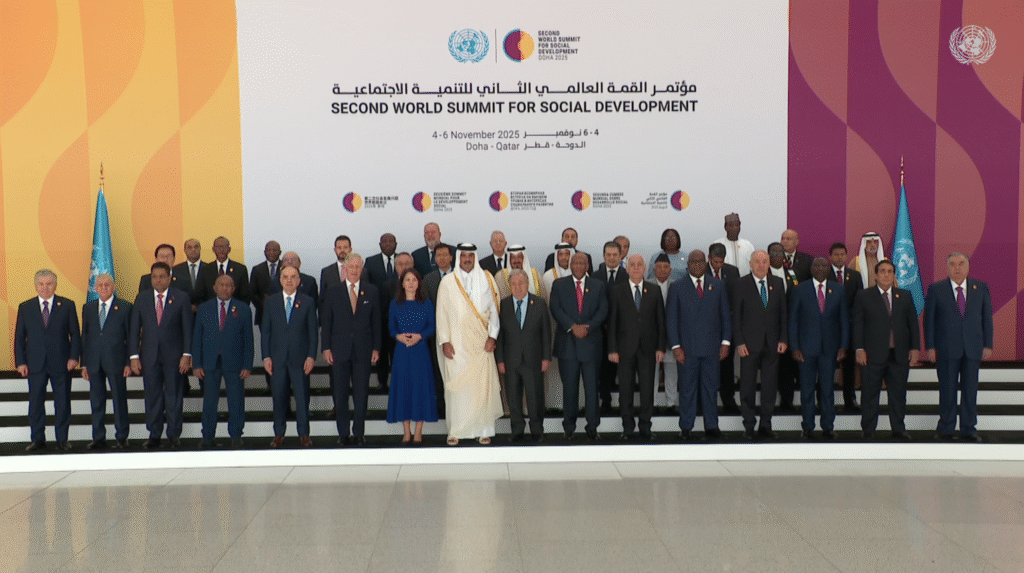
The Second World Summit for Social Development, hosted by the State of Qatar in partnership with the United Nations, brings together heads of state, ministers, civil society groups, and development experts from around the world to forge a new social contract centred on people, inclusion, and sustainability.
By Dare Akogun, Doha





